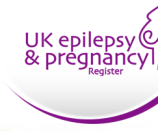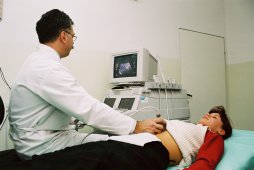
Pregnancy toolkit (2021): a resource for women & health professionals
Print 4 page double sided document in colour.
Reference: Morley K (2021) Maternity epilepsy shared care toolkit. Available from: www.womenwithepilepsy.co.uk
Pregnant women with epilepsy-a maternity[...]
Adobe Acrobat document [1.5 MB]
A peer reviewed maternity epilepsy toolkit1 designed to improve history taking, reduce risk, increase knowledge & awareness & provide a summary of a woman’s epilepsy management. Documentation starts at booking & continues throughout pregnancy & the postnatal period. Click PDF below to download as a four page double sided, colour document. It is intended that women with epilepsy have ownership of this toolkit and that it is stored within the maternity hand-held records. Click links on toolkit to download recommended resources. Copyright Kim Morley.
1. Morley K (2020) Reducing risks for pregnant women with epilepsy: A qualitative study exploring experiences of using a toolkit at the antenatal booking appointment. Epilepsy & Behavior Abstract
What happens when I become pregnant?
This is an exciting time and feel reassured that most women's seizure control will remain the same during pregnancy. However, others may experience an increase in seizures, a change in seizure pattern or severity, or an improvement in seizure control. Therefore, it is important to see your GP following a positive pregnancy test in order a prompt assessment is made of your epilepsy and treatment. The GP will then refer you to a community midwife for your booking appointment and a Consultant Obstetrician specialising in fetal/maternal medicine. If you are already receiving care from an epilepsy specialist team please inform them that you are pregnant. If you are not under the care of a consultant neurologist/epilepsy specialist, a prompt assessment should be made of your epilepsy and treatment and an appropriate referral made (please download the maternity epilepsy toolkit, above).
Please download this leaflet: Information for you, Epilepsy in pregnancy RCOG and information about coronavirus and pregnancy rcog.org.uk
Folic acid
All women trying to get pregnant and up until 12 weeks of pregnancy are usually advised to take 400 micrograms (mcg) folic acid every day. This vitamin can help prevent baby having a neural tube defect resulting in conditions like spina bifida. If you take epilepsy medication, there is a family history of neural tube defects, if you have already had a baby with a neural tube defect or if you have diabetes, it is recommended by the NHS that you take a higher dose of folic acid. This dose (5milligrams once daily) is prescribed by the GP before you become pregnant or if you are at risk of pregnancy. Your doctor will make sure this is a suitable dose for you to take with your epilepsy medication regime. You will usually be advised to continue taking this dosage until 12 completed weeks of pregnancy. If you did not start this before you became pregnant or have been taking the lower dose you can purchase over the counter, see your GP promptly for individual advice about whether you are advised to start the higher dose. Also check out the NHS website for further advice and information: NHS Choices
Antenatal booking appointment
When you see the community midwife let her know that you have epilepsy or a history of epilepsy and provide her with a description of your seizures. Let her know the date of your last three seizures. Take along your epilepsy medication and repeat prescription. Inform the midwife of possible triggers for your seizures. It would be helpful to bring along a witness of your seizures to help describe what happens. To assist maternity care, a multi-professional shared care plan will provide a summary of your epilepsy; please download the maternity epilepsy toolkit (PDF) at the top of this page.
How do I keep myself safe?
As pregnancy can be an unpredictable time for seizures even if you have been seizure free for many years, showering instead of bathing is safer to reduce the risk of drowning if you were to have an unexpected seizure. Avoid using a jacuzzi or Hot Tub and standing close to a water's edge whilst alone; including leaning over a bath. If you use the swimming pool, inform the life guard you have a history of epilepsy and always try to swim with a buddy. Try to avoid sleeping alone, especially if you have a history of sleep onset seizures. If you have no choice, you may benefit from using a safety pillow however, research in this area is inconclusive. For further information click: Epilepsy Society safety aids It is important you know how to reduce the risk of sudden unexpected death in epilepsy Seizures and risk. To help you with this do your own risk assessment by downloading this award winning app on your smart phone or tablet: EpSMON-Epilepsy self monitor app. It is easy to do and will provide you with an individual risk assessment and score and identify how you can reduce your risks.
Can pregnancy cause an increase in seizures?
If your epilepsy has been well controlled for at least 9 months before pregnancy, it is more likely to stay controlled during pregnancy1. There is evidence that pregnant women with focal epilepsy are more likely to have seizure recurrence than women with generalised epilepsy2. Blood levels of some epilepsy medication reduces during pregnancy; this may lead to an increased risk of seizures. Therefore, your specialist may recommend therapeutic drug monitoring and support from an epilepsy specialist especially if you are taking lamotrigine or levetiracetam2. If you do have an epileptic seizure in pregnancy, you will need to surrender your driving license for one year. This can be shorter for some people experiencing a first epileptic seizure. For further information, click Epilepsy & Driving
If you have a history of prolonged convulsive seizures, status epilepticus or more than one convulsive seizure occurring without regaining consciousness between seizures; it is important to have an emergency medication management plan in place; please discuss this with your epilepsy specialist.
Please do not stop your medication
Suddenly stopping or reducing epilepsy medication dosage may cause an increase in seizures and risk to your life. If you are concerned about the effect of epilepsy medication on your unborn baby, discuss this urgently with your GP or contact the UK Epilepsy and Pregnancy Register (details below); please do not just stop your epilepsy medication.
GOV.UK alert
22/01/24 Safety and educational materials to support the regulatory measures for prescribing valproate for epilepsy & bipolar for women of child-bearing age & when initiating prescribing in men & women 12-55 years GOV.UK
If you are concerned about the effect of your epilepsy medicines on your unborn baby, discuss this urgently with your GP. See below for further information. Information for girls and young women taking sodium valproate, click: Medicines for children Click: Care of baby & you further information of support groups.
What if I have pregnancy related nausea or vomiting?
You may need to alter the times you take your epilepsy medication. If vomiting is causing problems taking your epilepsy medication, contact your doctor urgently as vomiting and diarrhoea can affect the absorption of your epilepsy medication and cause recurrence of seizures. It is important that you stay hydrated and you may be prescribed treatment to stop you being sick. If you are admitted to hospital, it is important you are not placed in a single room and that you are assessed urgently and regularly by a senior obstetrician. If you are unable to take your epilepsy medication because of continued vomiting, your medication will need to be administered intravenously, instead.
Can a seizure harm me or baby during pregnancy?
There is a small increased risk of harm to a woman and her developing baby during a tonic clonic seizure. This is especially if the seizure is prolonged. Convulsive (tonic clonic) seizures arising from sleep, particularly is these are unwitnessed, are more likely to be associated with an increased risk of sudden unexpected death (SUDEP). To protect yourself, try to always remember to take your epilepsy medicines and urgently contact your healthcare team if you have a change in seizure control.
Ensure family/friends are aware of appropriate first aid. Where possible, avoid sleeping alone and shower rather than bath. Be cautious around water's edge including leaning over bath. Your family are advised to urgently obtain help by dialling 999 (in the UK) if this is a first seizure; convulsive seizure lasting 5 minutes or two minutes longer than the usual time of your seizure; if you have a convulsive seizure but do not gain consciousness before having a further seizure; if you have suffered harm or if additional help is needed. If you have a history of prolonged seizures or repetitive seizures (clusters) please ensure your doctor or epilepsy specialist formulates a managment plan and information session for you and your family about the administration of emergency (rescue) medication.
Please ensure that your own healthcare team are informed if you have recurrence of seizures in pregnancy. Depending on what happened, they will advise whether or not it is necessary for you to be seen urgently for monitoring of you and your developing baby. Click on:Epilepsy Society Seizure first aid
Please join the UK Epilepsy & Pregnancy Register
The information from the register has identified which epilepsy medications are safest for women to take during pregnancy. Joining the register is a simple process of providing information about your treatment. Details about baby’s health will be collected a few weeks following delivery from your GP.
Visit the website UK Epilepsy & Pregnancy Register Alternatively, send an email: UKEPR@manchester.ac.uk or call: 0800 389 1248
For visitors from the USA and Australia:
The North American Antiepileptic Drug Register, click Pregnancy Registry
Australian Pregnancy Register Registration, click: Registration
Which screening tests will I have?
You will be offered the same blood screening tests as other women at booking, 12 weeks and 28 weeks. In some cases, additional blood tests are recommended for epilepsy medication monitoring. Please discuss this with your care providers as despite a large study looking into this, there is no there is no evidence that regular monitoring of epilepsy medication drug levels in pregnancy improves seizure control compared with basing your epilepsy medication monitoring on clinical features3.
A dating ultrasound scan will be offered at 12 weeks and a fetal anomaly scan between 18-22 weeks. Each woman with epilepsy will be assessed on an individual basis as to whether they require further scans to provide addtional monitoring of their baby's growth. Epilepsy and taking epilepsy medication is not an indication for amniocentesis.
What's it like to be a mum with epilepsy?
In my years of experience of having the privilege of caring for women with epilepsy, I have found that the majority of women are wonderful mums to their children and extremely aware of the additional measures to put in place to maximise safety. However, some women have great concerns as to their ability to parent because of epilepsy. They can feel isolated and find this difficult to discuss with anyone. Do discuss any concerns you have with your care providers and I have added some useful links and information on Care of baby & you. Technology now enables women to get an insight into what it is like to be pregnant and care for children when you have epilepsy. These two blogs have been written by mums with epilepsy and will take you on that journey: Becoming a mum with epilepsy and FairyFaye1986.
Join the big conversation' women with epilepsy Facebook support group. Click women with epilepsy
Do I need to take vitamin K in the last weeks of pregnancy?
This is no longer recommended in the antenatal period. Instead, it is recommended that you consent to your baby receiving an injection of vitamin K following delivery as it is more effective than vitamin K oral medication in reducing the risk of haemorrhagic disease of the newborn. NHS UK What happens straight after the birth
How can I reduce the triggers for seizures?
As well as the influence pregnancy has on the way your body processes your epilepsy medication, forgetting to take it, lack of sleep and stress are probably the most common reasons seizures may recur in pregnancy. To reduce these triggers, it is important to find out whether your epilepsy medication dosage may need adjusting in the pregnancy; please discuss this with your specialist team. Using medication reminder techniques will help reduce the risk of forgetting to take your epilepsy medication. Please click on Epilepsy Society and look at their strategies & tools for taking epilepsy medication.
Infections are more common during pregnancy due to the unique changes that occur in your body. Please ensure that you report any signs of infection to your care providers as soon as possible and take extra safety precautions with your epilepsy as infection can be a trigger for seizures.
Only about 3 in 100 people with epilepsy have photosensitivity. If you have this condition please obtain further advice to protect yourself from this potential trigger of seizures from: Epilepsy Action: Photosensitive epilepsy
Many pregnant women have sleep disturbance; this can be particularly troublesome for women with epilepsy as it can increase the risk of seizures. Do ask your midwife for advice and support. Further self-help information can be obtained from Epilepsy Action: Sleep
Stress, anxiety, depression and mood disorder
Stress can also be a trigger for seizures. An example of this can be when something feels unjust. It can be really hard to switch off to it and this in turn can impact on well-being, confidence, self esteem and sleep. For whatever reason, If you are struggling with stress, anxiety, depression or a more serious mental health condition, please discuss this promptly with your healthcare providers.There are also excellent resources available from: Royal College of Psychiatry: Mental health in pregnancy; NHS Mental health: toolkit for management of Stress, Anxiety & Depression; NHS: Mindfulness and NHS: Cognitive Behaviour Therapy
Relaxation and therapies to make you feel good
Travelling during pregnancy
It is important to consider your safety when travelling away from home. Always ensure that you have your antenatal hand-held notes with you together with an ample supply of your medication and treatment. If you are travelling abroad, do ensure that you have packed in your hand luggage the correct travel documents including travel insurance, your antenatal hand-held notes, an ample supply of your medication together with the repeat prescription. For further information click Holiday safe pregnancy travel insurance guide and link to the Epilepsy Action website Travelling abroad for people with epilepsy.
How can I reduce the risk of pregnancy complications?
- It is advisable to have pre-conception epilepsy specialist assessment before becoming pregnant. This is to make sure your epilepsy diagnosis and treatment is reassessed and your seizures controlled on the safest epilepsy medication for you and your baby.
- Quitting smoking, avoiding alcohol, getting plenty of exercise, eating a healthy diet and being an ideal weight will help reduce risk factors in pregnancy. For further information: NHS weight guide advice NHS Quit smoking advice
- Attending all your appointments and screening tests and requesting all healthcare professionals involved in your care work as a team. Please show them your maternity epilepsy toolkit and ask them to record all visits in your hand-held maternity notes.
- Talking to your healthcare providers about how you are feeling both physically and psychologically and feeling able to ask for support. Talking therapies are often of particular benefit and you can often self-refer. Example:italk
- Taking your own epilepsy medication at the prescribed times whilst in the community and during any admission to hospital, including during labour.
- Keeping in contact with your midwife in order any changes in your physical or mental well-being can be detected promptly. Inform the midwife if accessing appointments is difficult in order she can make alternative arrangements to see you at home.
- Avoid being admitted to an unattended single room whilst in hospital care as this increases your risk of harm if you were to have a seizure.
- Using your appointments as an opportunity of informing health professionals about your epilepsy. You are the expert.
- Conduct a self risk assessment for your safety and in preparation of your hospital admission for labour. This includes the same advice as when you are at home; use the shower instead of bathing to reduce the risk of drowning if you were to have an unexpected seizure. Epilepsy Society Risk Assessment
- Each woman in labour is assessed individually and supported where possible for their choice of using a birth pool. The most important consideration for a women with epilepsy is their safety. If your epilepsy has been active and/or there are obstetric/foetal factors that do not meet the safety guidelines, you will be advised not to use the pool. If you do use the pool, please note this is often separate from the main delivery suite. Your professionals may advise that you are cared for in the main delivery suite.
- If you do use a bath/birthing pool please ensure someone is with you at all times, the hoist is operational and that you stay well hydrated. If you feel at risk of seizures, tell someone and come out of the pool.
- Feeling in control of your pregnancy and epilepsy by making informed choices and plans about your pregnancy and birth.
- NHS pregnancy and epilepsy advice, click the following link: NHS Epilepsy in pregnancy
- Tips for looking after a child when you have epilepsy: Epilepsy Action
References
1. Harden C, Hopp J, Ting T, Pennell P, French J, Le Guen C, et al. Practice Parameter update: Management issues for women with epilepsy-Focus on pregnancy (an evidence-based review): Obstetrical complications and change in seizure frequency Report of the Quality Standards Subcommittee and Therapeutics and Technology Assessment Subcommittee of the American Academy of Neurology and American Epilepsy Society. Neurology 2009; 73(2): 126-132.
2. Battino D, Tomson T, Bonizzoni E, Craig J, Lindhout D, Sabers A, et al. Seizure control and treatment changes in pregnancy: observations from the EURAP epilepsy pregnancy registry. Epilepsia 2013;54(9):1621-7.
3. Thangaratinam S, Marlin N, Newton S, Weckesser A, Bagary M, Greenhill L, et al.AntiEpileptic drug Monitoring in PREgnancy (EMPiRE): a double-blind randomised trial on effectiveness and acceptability of monitoring strategies. Health Technol Assess 2018;22(23)
Author: Morley K (2021) Pregnancy toolkit for women with epilepsy. Available from:www.womenwithepilepsy.co.uk




